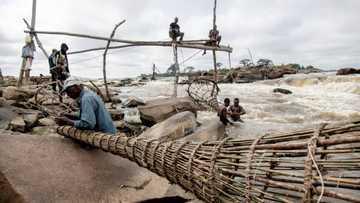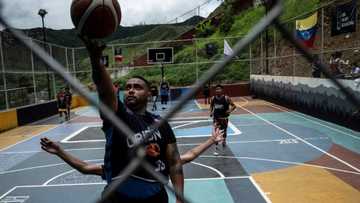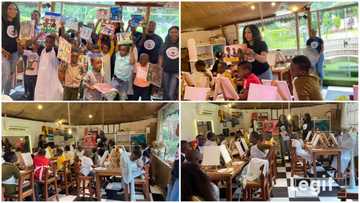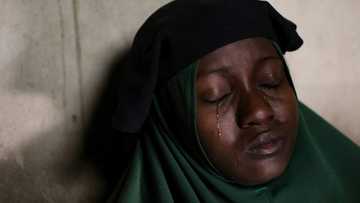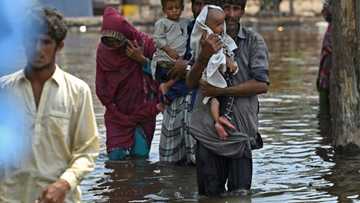Rejected Angels: How Innocent Nigerian Kids Are Still Branded Witches, Rejected By Families and Left to Die
In July 2022, young Hope was reunited with his father and set foot in the same Akwa Ibom village where he was rejected, labelled a witch and left to die. Surely, the villagers would marvel at how the haggardly-looking and malnourished reject of 2016 looked all dapper, well-fed and handsome.
PAY ATTENTION: Сheck out news that is picked exactly for YOU ➡️ find the “Recommended for you” block on the home page and enjoy!
Hope is one of the few lucky kids who were rescued in time after being branded witches. Sadly, in 2022, child witch-hunting is still very rampant, especially in South Eastern states like Akwa Ibom and Calabar.
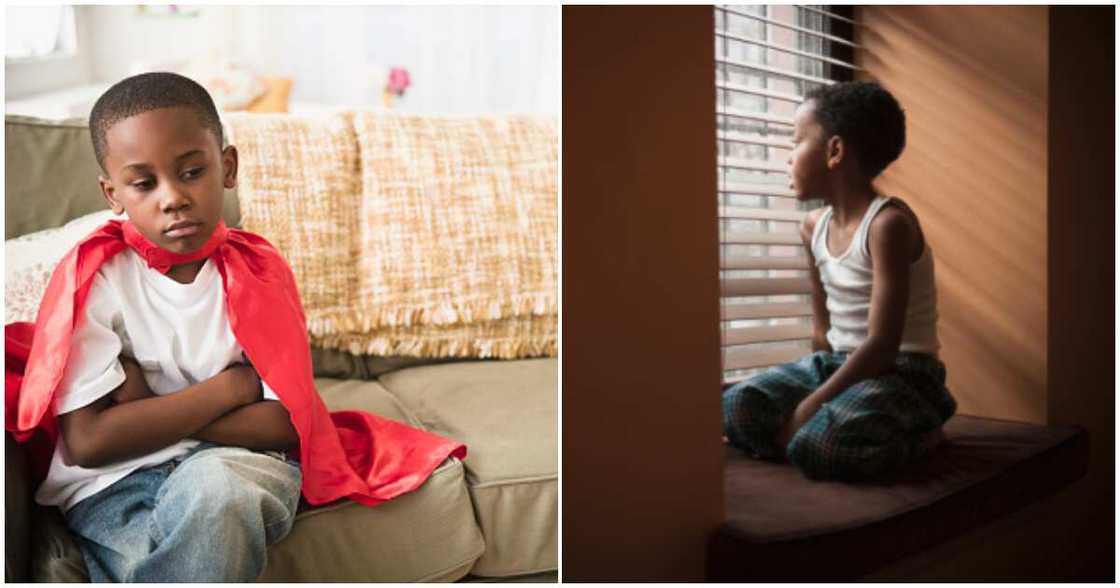
Source: Getty Images
Who are the kids labelled witches?
A 2008 report states that over 15,000 children have been branded witches in Akwa Ibom and Cross Rivers states alone.
Giving a gory insight into what these innocent children tagged witches suffered, an article by Pulitzer Center revealed that research done in that same period showed there were documented cases of kids and babies who had nails driven into their heads, were forced to drink cement, set on fire, scarred by acid, poisoned, and even buried alive.
PAY ATTENTION: Сheck out news that is picked exactly for YOU ➡️ find the “Recommended for you” block on the home page and enjoy!
According to a 2010 report by the United Nations International Children's Emergency Fund (UNICEF), vulnerable children often targeted for witch-hunting are those with physical disabilities or illnesses such as epilepsy.
A child who also appears lazy, unruly or withdrawn unfortunately usually suffers the same fate.
Child witch-hunting and its pentecostalism ties
The prevalence and existence of child witch-hunting in Nigerian society cannot be unconnected to pentecostalism.
The Organisation for World Peace explained pentecostalism as the belief that there is no such thing as a natural cause and that any misfortune is either the work of Satan or his servants in the form of witches and wizards.
In communities where these beliefs are held in high esteem, children are seen as the instruments of family misfortunes who need to be exorcised by preachers.
When tagged a witch, the stigmatization alone would make a child begin to believe he or she is truly a witch.
The belief is even stronger than family relationships as these innocent kids are most times tortured by their loved ones and the community into confessing crimes they didn't commit. The resultant response is that they are rejected by their families and the community at large.
The word Skolombo becomes their new identity. Skolombo is a local parlance that refers to those persons sent away from homes or abandoned for different reasons.
Some preachers who specialise in tagging these kids witches and conducting exorcisms make fortunes from it.
Despite the Child Rights Act of 2003 being an existing law in Nigeria, it does not have the needed effect in dealing with these hydra-headed monsters against children.
Only about three-quarters of Nigeria’s states have domesticated the Child Rights Act, Pulitzer Center reports.
The 'volunteer soldiers' fighting for these 'rejected angels'
While there is a dire need for more work to be done on the part of the government in stemming this vicious tide, it is necessary to commend kindhearted individuals and non-governmental organisations who have been at the forefront of rescuing these vulnerable kids.
One of such stellar 'volunteer soldiers' championing this cause is a Danish lady identified as Anja Ringgren Lovén.
Since 2012, Lovén's foundation has been rescuing and protecting children accused of being witches in Nigeria.
Lovén became a viral sensation in 2016 after a photo of a malnourished kid named Hope she rescued circulated on social media.
In the said viral photo, she could be seen squatting in front of the small naked and starved boy to whom she gives water with her water bottle. She took him in and cared for him like her own.
6 years later, she took a transformed Hope to the same village that had rejected him after labelling him a witch.
Together with her partner David Emmanuel Umem they have successfully run Land of Hope which is situated in Akwa Ibom.
Other organisations fighting this cause include, but are not limited to, Children of the Lord Rescue, Coalition Against Witchcraft Stigmatization of Children in Africa.
Some success stories, proof that kids tagged witches are innocent
Save for successful rescue operations embarked upon by non-governmental organisations like Land of Hope, the promising future of these vulnerable kids would have been cut short.
While our hearts go out to the unlucky kids who have been killed before help could come to them, we examine the stories of Gladys, Esther, Imoh, Ini and Ernest.
Along with the viral boy named Hope, Gladys, Esther, Imoh and Ini were rescued by Anja's Land of Hope in 2016.
The NGO not only cared for them, but ensured they acquired education and these kids didn't disappoint.
In August 2022, the trio completed their nursery and primary school education respectively. Seeing them in their academic robes, you won't believe these beauties were once tagged witches.
Another inspiring success story is that of a lad named Ernest. Ernest was rescued from Akwa Ibom by the Land of Hope around 2014 after he was labelled a witch.
It is noteworthy that his case was a terrible one as he was marked for death before help came.
Anja announced months ago that Ernest had successfully completed his secondary school education and was set to study electrical engineering at the university.
What needs to be done going forward on the child witch-hunting issue
While the enactment of the Child Rights Act of 2003 and its domestication across many states is a commendable effort, there is a need for more specific laws to tackle this problem.
For one, laws with stiffer penalties for killers of vulnerable children and perpetrators of such acts should be introduced.
There should also be special laws that will punish family members who willingly allow their kids to be subjected to 'witchcraft removal deliverances' and preachers who carry out these exorcisms.
Also, there is a need for heightened sensitisation on the Skolombo epidemic among rural dwellers. This is because child witch-hunting is prevalent in rural areas.
Source: Legit.ng

